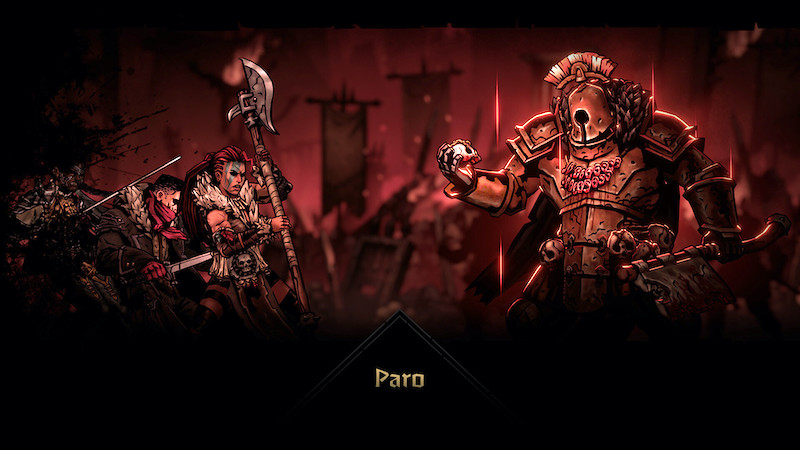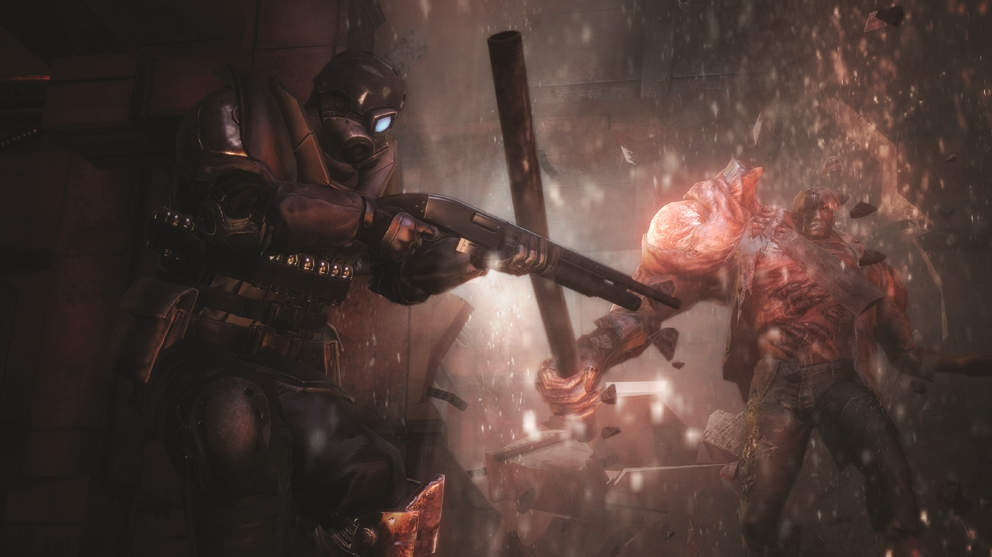
Good Job! Explores Various Feelings Around Workplace Murder
Good Job! is a game about killing your co-worker. It’s not a simple act of violence, though. As you’re stuck in a time loop, there’s simply not much else to do besides kill the person you’re stuck here with. But how does all this killing make you feel? What emotions stir when all you do is murder someone who seems quite nice to you? Through careful use of story and structure, the game carries you through different feelings over a short period of time, making you reflect on the violence in different ways throughout its short play time.
Ellen wakes up every day. Steps out of her room. Makes her way to the office. There, Olivia, her co-worker, showers her with pleasantries. Asks her about how she’s doing. Seems genuinely concerned about how she feels. This enrages Ellen, as she’s been hearing the same comments for months as she wakes up, day after day, in this same loop. She feels she’s in a time loop, and is utterly sick of seeing this same day play out. She’s found one way to keep herself occupied, though: killing Olivia.
Good Job! provides you with a variety of ways of doing this. Most of them are fairly brutal, honestly. You can smash her head to pulp in a cupboard door. Set her on fire with a lighter and some spray deodorant. Beat her to death with a piece of a wooden desk. It’s quite ruthless, and at first, quite shocking. With Olivia having been so nice to Ellen, it feels unsettling to see her get mercilessly stomped, cut, and burned. I was instantly uncomfortable playing through these segments.

However, as the game loops, you get desensitized to it. There’s not much else to do in the game world besides kill Olivia, so you fall into this detached habit. The game plays like a point & click adventure, so you just poke around a handful of rooms and look at things. If you find something new, it usually leads to some unpleasant end for Olivia. There’s nothing else to do besides to kill her, though, so you just do it. Over and over again.
For all of that initial shock, Good Job! almost becomes dull. You come back to the same few rooms and look around for anything you hadn’t clicked before. If it’ll kill Olivia, you click the button and see what happens next. That sickening sensation is replaced by a kind of morbid curiosity to deal with your boredom. Will this pair of scissors provide us with another ending to this journey? What about this pencil sharpener? You keep pushing forward just to find something to do.
The game can get fairly gruesome with its depiction of Olivia’s deaths, too. It’s not outright gory, but something about seeing the aftermath of her head being slammed in a cupboard really put me off. Maybe it’s her friendly demeanor. Maybe it’s the cute character art. Either way, it’s disturbing to see how Olivia dies at first. That feeling soon switches to that same detached boredom. You get a flicker of excitement at seeing something shocking and new after some time with the game.

It was such a strange experience to see my emotions switch throughout Good Job!. You play the same days as Ellen does, so you go through a similar emotional trajectory. At first, maybe this was shocking for you. However, after a run or two, you stop caring for Olivia too. It doesn’t matter how nice she was. You don’t care how little she deserves this. As you start to grow tired of the time loops, your empathy drains and Olivia becomes a target simply to alleviate your boredom.
Your repeat playthroughs ARE getting you somewhere, though. You get periodic shifts and quick story snippets that tell you that you’re progressing. It feels like you’re getting somewhere. Well, somewhere other than just a complete list of deaths for Olivia. That curiosity steadily tugs you along, and your cruelty becomes more motivated. It’s less a passive kind of curiosity and shifts into a need to know what is happening. Your viciousness is even more detached as Olivia becomes a means to get your answers. You kill her faster and faster.
You won’t like the answer you get in Good Job!. I don’t want to spoil things too much, but there are story events that will lead you right back to the guilt you felt when you first killed her. Suddenly, all of that shock and disgust is back. You can see Olivia for the kindhearted person she always was. You can feel how loathsome you were in the evil ways you treated her. It’s hard not to reflect on yourself in this moment, wondering how you were so quick to give in to ruthless murders out of pure boredom.

This was all accomplished through some narrative structuring and the mechanics. The game has always been offering you a means to hurt Olivia. There’s no shortage of them. However, it wanted you to explore how you felt about doing so. It gave you some different perceptions of events based on Ellen’s view on things at first, but you quickly adapt your own over the course of play. You feel horror at first, then boredom out of a lack of other mechanics besides violence, then ruthless curiosity, and finally remorse at what you’d done (hopefully). It’s an incredible journey fueled by story, the straightforward mechanics of interacting with things to kill Olivia, and the player’s own feelings.
Good Job! is a disturbing game about examining yourself in a bleak situation. How far will your own nuisances at work carry you if you give them a chance? Are you a good person if a little boredom is enough to make you a killer? A killer that will find various means to hurt things to make it exciting for yourself? And how easy are you to manipulate if a twenty minute game can make you do these things? It’s a lot of questions to ask yourself, and all brought up with some clever design and a sharp storytelling.




